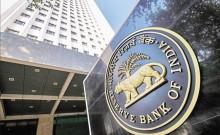China's efforts to prop up its faltering economy by devaluing its currency yuan in a bid to make exports competitive is detrimental to the global world economic order and calls for greater scrutiny by multilateral institutions like the International Monetary Fund, RBI governor Raghuram Rajan has said.
Though he did not name China directly in his article published in Project Syndicate, the comment in the context of the current turmoil in the Chinese stock markets and the country's devaluation of the yuan cannot be missed.
"...we need to avoid beggar-thy-neighbor policies, such as unconventional monetary policy or sustained exchange-rate intervention, that primarily induce capital outflows and competitive currency devaluations (sic)," he said in his opinion piece on Project Syndicate.
"The bottom line is that multilateral institutions like the International Monetary Fund should exercise their responsibility for maintaining the stability of the global system by analyzing and passing careful judgment on each unconventional monetary policy (including sustained exchange-rate intervention). The current non-system is pushing the world toward competitive monetary easing, to no one's ultimate benefit, (sic)" he added.
His comments come even as China is staring at a slowdown that is projected to worsen this year, if one were to go by the World Bank's latest report on global growth and countrywide GDP projections for 2016.
On Thursday, China lowered the yuan's central rate against the US dollar by 0.51% to 6.5646, the lowest since March 2011, reports PTI.
Rajan called for refraining from "resisting parochial pressures" and developing a consensus for free trade and "responsible global citizenship" to set the right conditions for sustainable growth, which is the need of the hour.
The World Bank has sid China is expected to grow 6.7% in 2016 while projecting India's FY2017 growth rate at 7.8%, calling it a "bright spot" , in its report titled "Global Economic Prospects".
The forecast for China is lower than the estimate of 7%, made in June last year.














